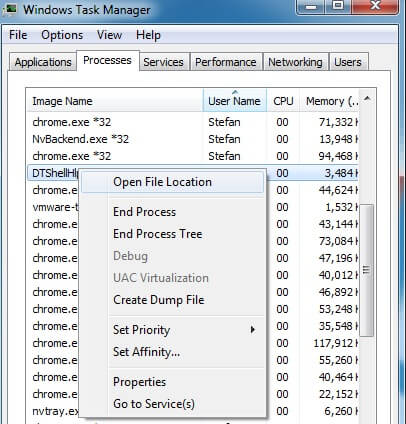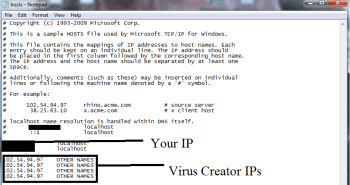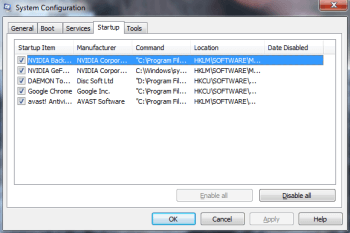
*Source of claim SH can remove it.
Mortal Kombat Ransomware
Mortal Kombat Ransomware is a highly dangerous ransomware infection belonging to the file-encrypting subcategory. When it infects your machine, Mortal Kombat Ransomware stealthily begins to encrypt certain file types, thus making them inaccessible to you.

Here we have put together a removal guide for Mortal Kombat Ransomware, along with an article explaining what this virus really is. If your files have been encrypted by this stealthy infection, and you don’t want to pay a ransom to the crooks who are now blackmailing you, the information we’ve prepared here may help you deal with this cyber threat. Our “How to Remove” team is dedicated to helping users like you in the fight against such malware infections, and here you’ll learn how to effectively remove Mortal Kombat Ransomware and protect your computer in the future.
The MortalKombat virus
Eliminating the MortalKombat virus is of utmost importance if you want to bring back the infected machine back under your control, and block the hackers’ access. If you do not first remove the MortalKombat virus, then all attempts to restore your encrypted data may prove futile.

With this in mind, we will share our tested, and detailed steps with you in the next lines. You may also like to learn about some alternatives to the ransom payment, that may help you get your data back without giving your money to the criminals. Therefore, once you eliminate the infection, we will point you to the file-recovery section of the guide, with the hope that you will find it helpful. But let’s first say a few words about this new cyber threat before we move on, so that you better understand the malware you’re about to deal with.
Usually, infections with Ransomware such as Nokoyawa, R0n occur when users click on malicious content pieces. Such content is frequently spread via spam emails, attachments to misleading messages, links, torrents, and suspicious downloads. The harmful payload can appear in the form of an ad, an image, a pop-up, or a regular file, and trick you into clicking on it without having a clue about the infection that it carries. This being said, Trojan horses are a preferred transmitter of Ransomware because of their capacity to mask themselves as apparently harmless pieces of web content. Sadly, neither the infection, nor the file encryption process has visible symptoms, thus, it usually goes unnoticed until the malware reveals itself through a ransom note on the victim’s screen.
The Mortal Kombat Ransomware file encryption
The Mortal Kombat Ransomware file encryption can often be a tedious and lengthy process that may sometimes be intercepted if detected in time. But keep in mind that the Mortal Kombat Ransomware file encryption is usually very complex and undoing it is no easy task.
The direct decryption of the encrypted files can only be achieved after the application of a unique decryption key. Unfortunately, the decryption key for Mortal Kombat Ransomware’s encryption is in the crooks ‘ hands, and they would only give it to you in exchange for a sizable amount of money, payable in Bitcoin. They provide detailed instructions on how to pay the Bitcoin in a note of ransom, displayed immediately after the file encryption has finished. Very often, if a payment is delayed or not made, the hackers will threaten to destroy the decryption key forever. They might even threaten to double the sum demanded for the ransom in order to make the victims pay faster. You should understand, however, that these are manipulative techniques used by cyber criminals to make their victims behave impulsively, and pay as fast as possible.
Sending money to the crooks behind Mortal Kombat Ransomware, however, is not a good idea. Many Ransomware victims burn their money this way, and they get a key that doesn’t work or they never get a decryption key at all. Therefore, many security experts would advise you not to pay a cent to these crooks, and our “How to Remove” team supports this opinion.
It might be possible to restore your files by other means, and in the removal guide below, there are some options that you may like to try. Of course, it is ideal to restore the data from personal backup copies. You can use copies that you keep on an external drive or on a cloud. That is why the smartest and easiest way to protect yourself against data loss caused by Ransomware is to create regular backups, and keep them on external drives. However, you’d still need proper antivirus software and a well-maintained and updated system to remove the virus and prevent future infections.
SUMMARY:
| Name | Mortal Kombat Ransomware |
| Type | Ransomware |
| Danger Level | High (Ransomware is by far the worst threat you can encounter) |
| Data Recovery Tool | Not Available |
| Detection Tool |
We tested that SpyHunter successfully removes Mortal Kombat Ransomware* and we recommend downloading it. Manual removal may take hours, it can harm your system if you re not careful, and Mortal Kombat Ransomware may reinstall itself at the end if you don’t delete its core files. |
*Source of claim SH can remove it.
Remove Mortal Kombat Ransomware

Ransomware threats like Mortal Kombat Ransomware can be very challenging to remove. Therefore, it may be easier to deal with the infection if you Reboot the infected computer in Safe Mode (use this guide for instructions).
Before that, however, go to your browser and bookmark this removal guide, so you can easily reload it and complete it till the end.

WARNING! READ CAREFULLY BEFORE PROCEEDING!
*Source of claim SH can remove it.
After the system reboots in Safe Mode, press CTRL, SHIFT and ESC and, in the Task Manager that opens, click Processes.
Search the processes list for entries that look suspicious. These could be entries with odd names that use high CPU or Memory resources. However, if you find it hard to determine whether a given process is malicious just by looking at it, the best way to check it for malicious code is to right-click on it, open File Location and scan the files there with a reliable scanner.

You can use the free and powerful online virus scanner below if you don’t have a reliable tool at hand:

If some of the scanned files get flagged as threats, end the related processes and delete the files.
![]()
Attention! You will be dealing with Registry files here! Changes and deletions in the Registry may cause system corruption if done improperly.
Click on the Start menu button and type Regedit in the search field.
Press Enter and once the Registry Editor opens, press CTRL and F together.
Type the Name of the ransomware and starts a search.
If any entries with that name are found in your registries, they most likely are related to the ransomware and need to be deleted. Be extremely careful, though, as you may damage your system if you delete entries that are not related to the threat.
Next, close the Registry Editor when no more ransomware-related entries are found in it and click the Start menu button again. Type each of the lines below in the search field:
- %AppData%
- %LocalAppData%
- %ProgramData%
- %WinDir%
- %Temp%
The ransomware may have added some new files in these locations, so carefully check each of them for something new or unusual.
When you reach the Temp folder, select everything that is stored in there and delete it.
![]()
Mortal Kombat Ransomware is a sophisticated infection that may make changes in various system files. The Hosts file is a common target, so to check it out, copy the line below in the Start menu search bar and open the result:
notepad %windir%/system32/Drivers/etc/hosts
Then, scroll the text of the Hosts file and check if under Localhost you find some suspicious IP addresses like those on the image below:

If you detect something disturbing – write to us in the comments.
Next, again the search field, type msconfig and open System Configuraiton:

Select the Startup tab and check if Mortal Kombat Ransomware has added some malicious Startup Items in the list. If you find it hard to decide whether a given item is malicious, do quick online research to find more information about it. Then, based on the details that you have found, Uncheck the checkmark of the items that you think are related to the ransomware.

How to Decrypt Mortal Kombat Ransomware files
Once you are sure that Mortal Kombat Ransomware has been successfully removed from your computer, we recommend that you check our guide on file decryption alternatives. There you will find some of the most effective solutions that may help you decrypt your files.
If you have doubts that there are still some traces of the infection on your system, we recommend that you scan it with the powerful anti-virus program listed on this page. Also, you can try our free online virus scanner to check every file that looks suspicious. In case you run into trouble, feel free to write us in the comments.

Leave a Reply